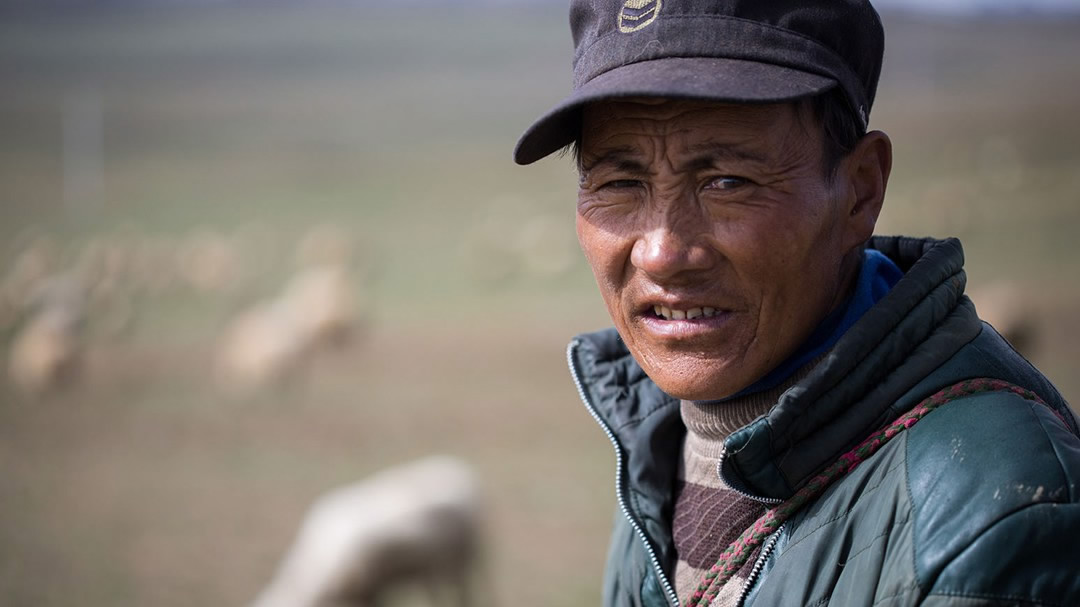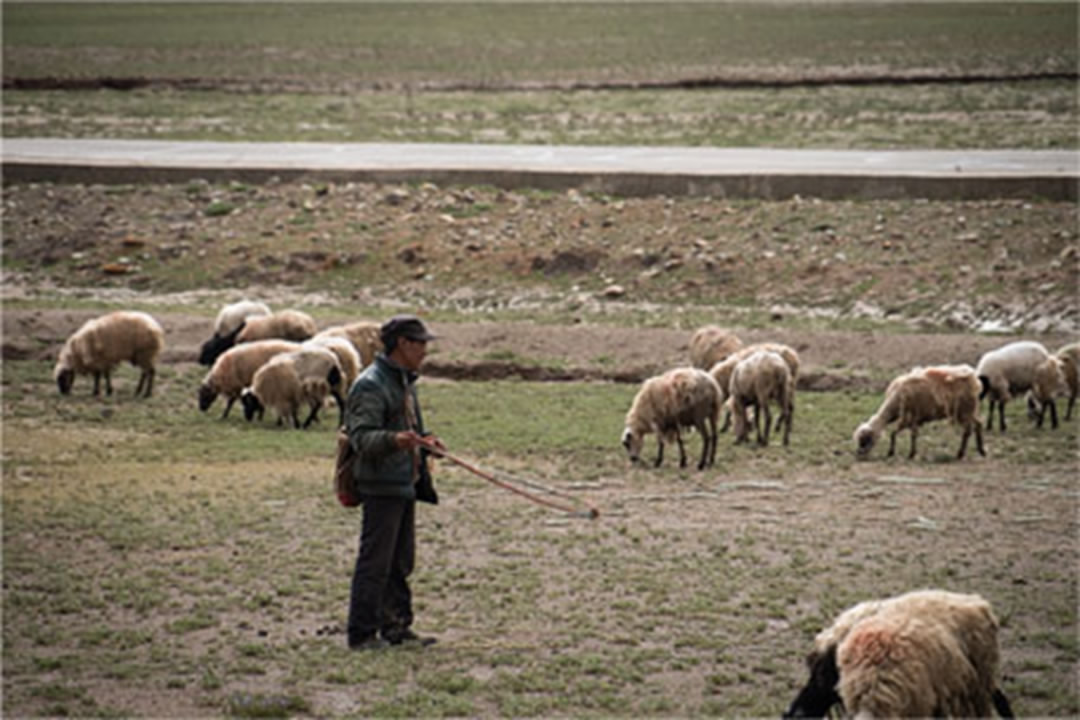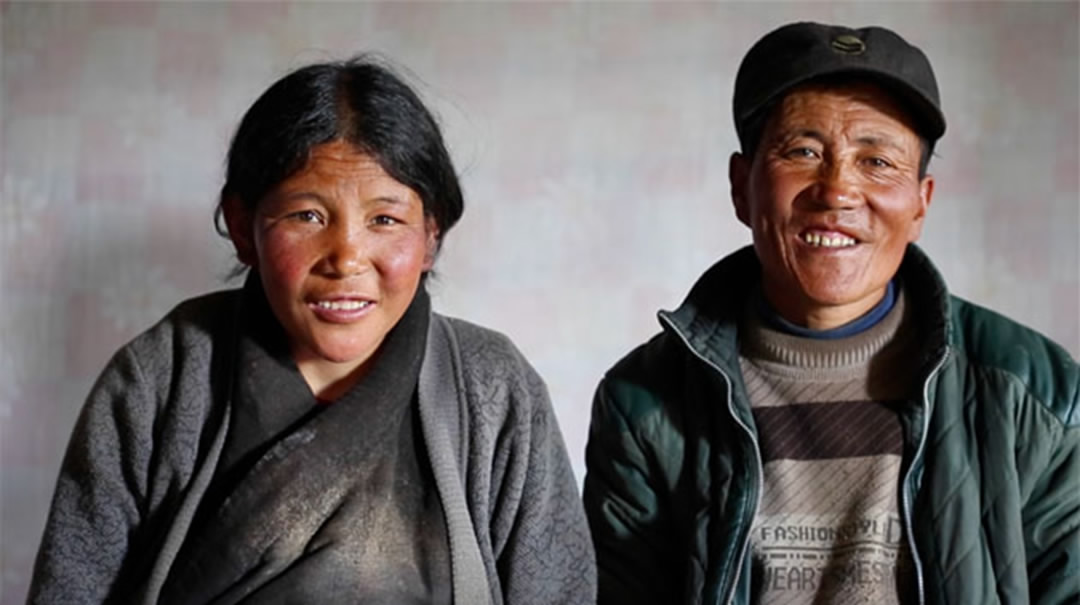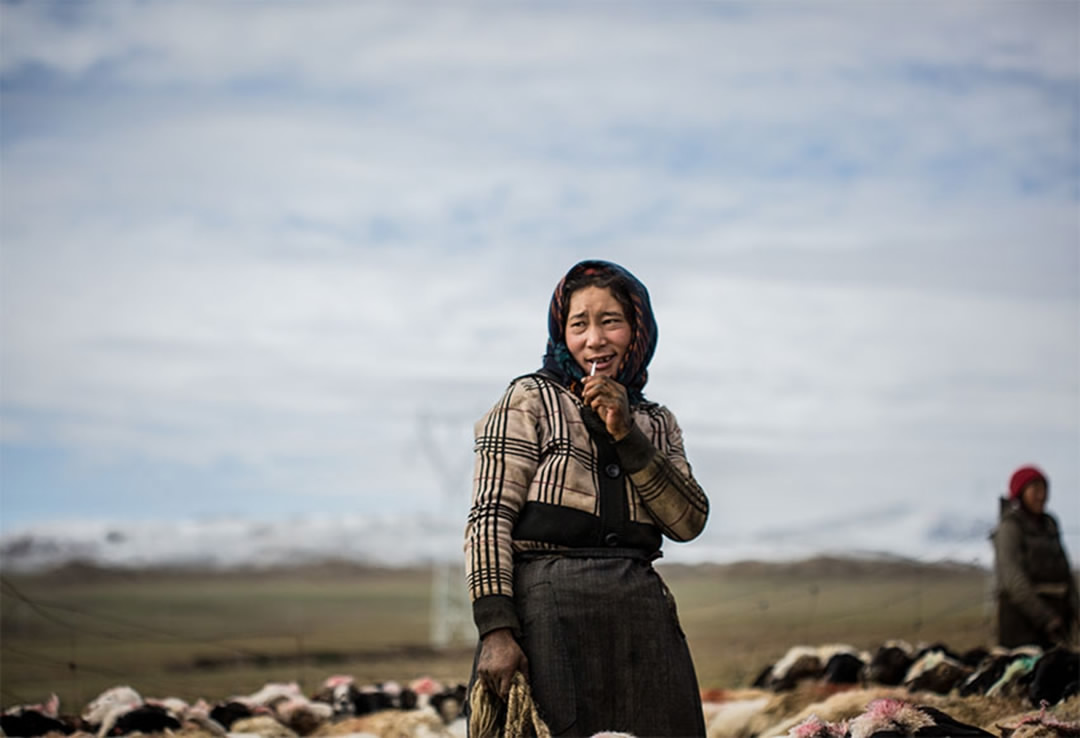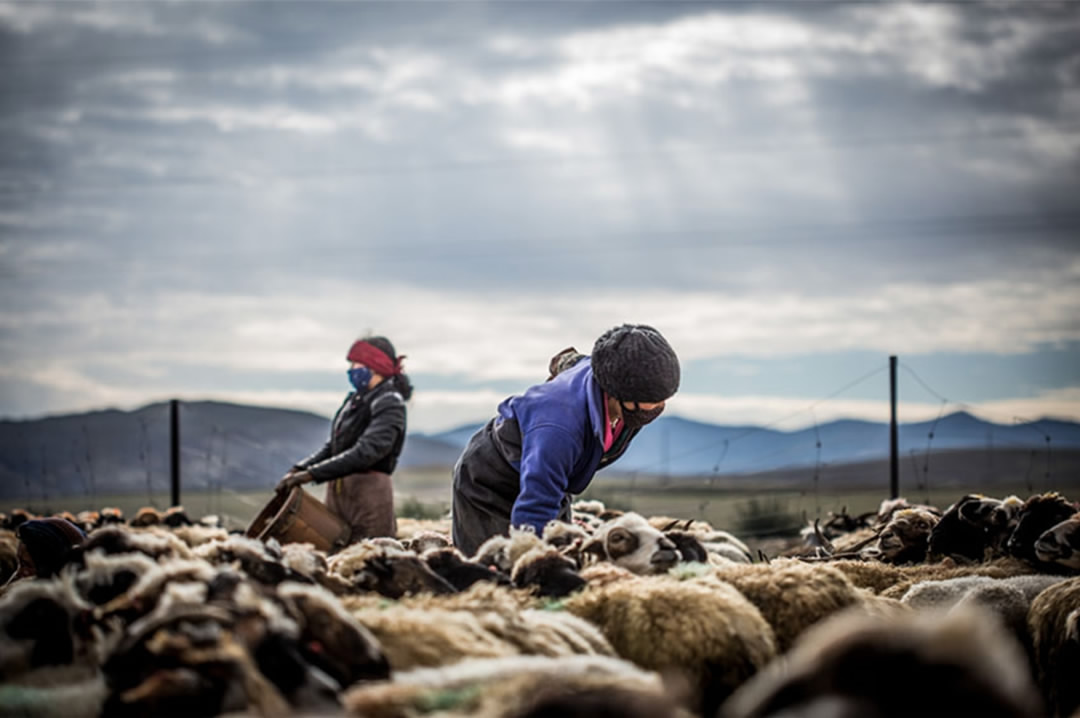When it comes to sheep, there is no place like Tibet that can provide a better atmosphere and habitat to live. In Tibetan culture, sheep are highly regarded as sacred figures and pasturing is still an important lifestyle in the region. While for sheepherders, life on grassland demands the strongest ability to endure loneliness and deal with the ever-changing weather patterns.
CGTN tagged along with Ga Tsering, a 49-year-old sheepherder who lives in the Chegu Prairie, as he shared his experiences of living half his life on the grasslands of an altitude of 4.7 km.
365 DAYS WITH THE SHEEP
Traditional Tibetan songs always describe the shepherd’s life as a tough and lonely one. We caught a glimpse of that when a tempest of hailstones came out of the blue, ruining our planned shoot. All the frightened sheep were herded back into the flock, and the next day, the shepherd Tsering got back to herding earlier than normal, bringing the hungry sheep back onto the summer prairie.
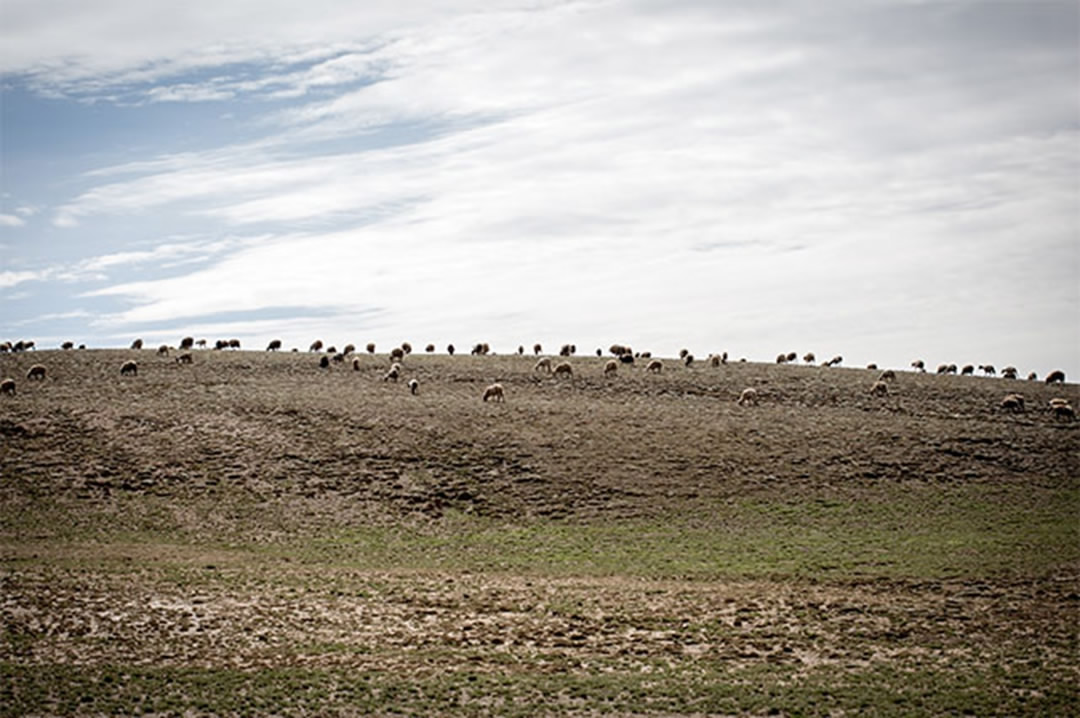
Traditional Tibetan songs always describe the shepherd’s life as a tough and lonely one.
Traditional Tibetan songs always describe the shepherd’s life as a tough and lonely one.
Tsering’s life is built around his sheep since he started shepherding when he was 24. “I got used to the life in prairie, it’s just me, with the sheep keeping me company.”
The 49-year-old now lives with his wife in a makeshift house in the Chegu prairie in Comai county, southeast Tibet’s Shannan Prefecture, known for its good grazing land. It takes about 2 miles to walk from his home to the herding grasslands. His parents are living in Chegu under the government’s housing project. But from summer to winter, Tsering ’s life transforms between a life of a settler and a shepherd.
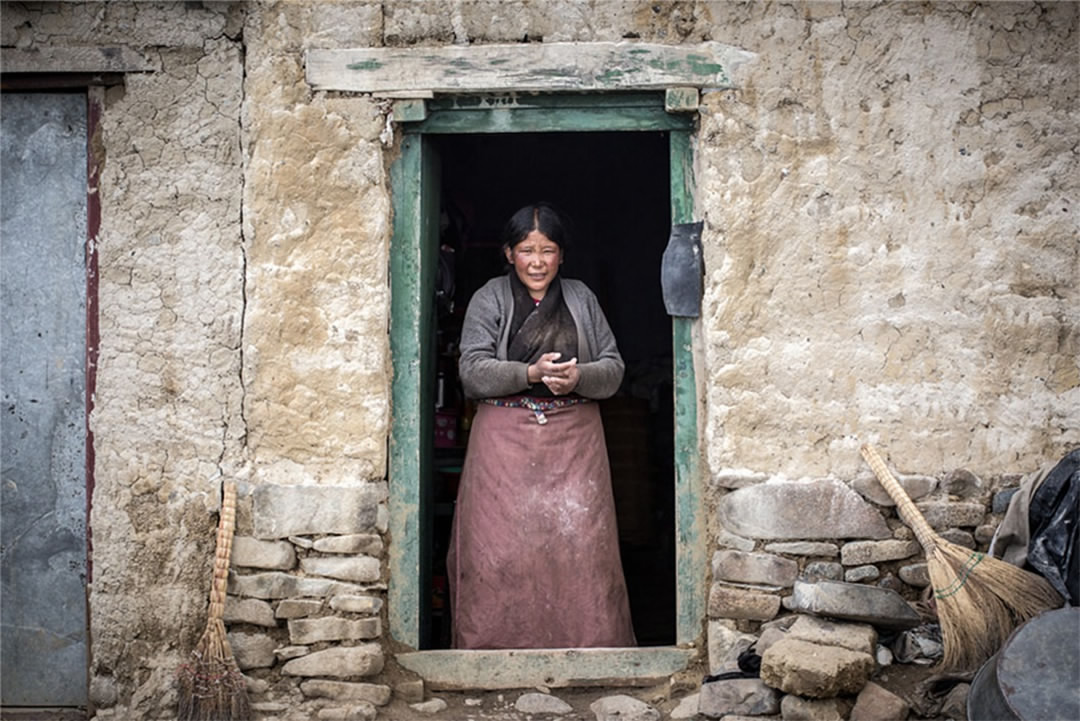
The 49-year-old Ga Tsering now lives with his wife in a makeshift house in the Chegu prairie in Comai county, southeast Tibet’s Shannan Prefecture.
The 49-year-old Ga Tsering now lives with his wife in a makeshift house in the Chegu prairie in Comai county, southeast Tibet’s Shannan Prefecture.
“I herd the sheep out early in the morning and go back home for dinner, 365 days a year, in all kinds of weather. It feels like I’m living in a hostel, and spend most of my life guarding the mountain,” he said when speaking about the tough life of herding sheep. There was no distress on Tsering’s face though. “I feel satisfied when we have enough meat, butter and money to live with.”
“Although it’s just a mountain, it’s my home and I won’t leave.”-Ga Tsering
-
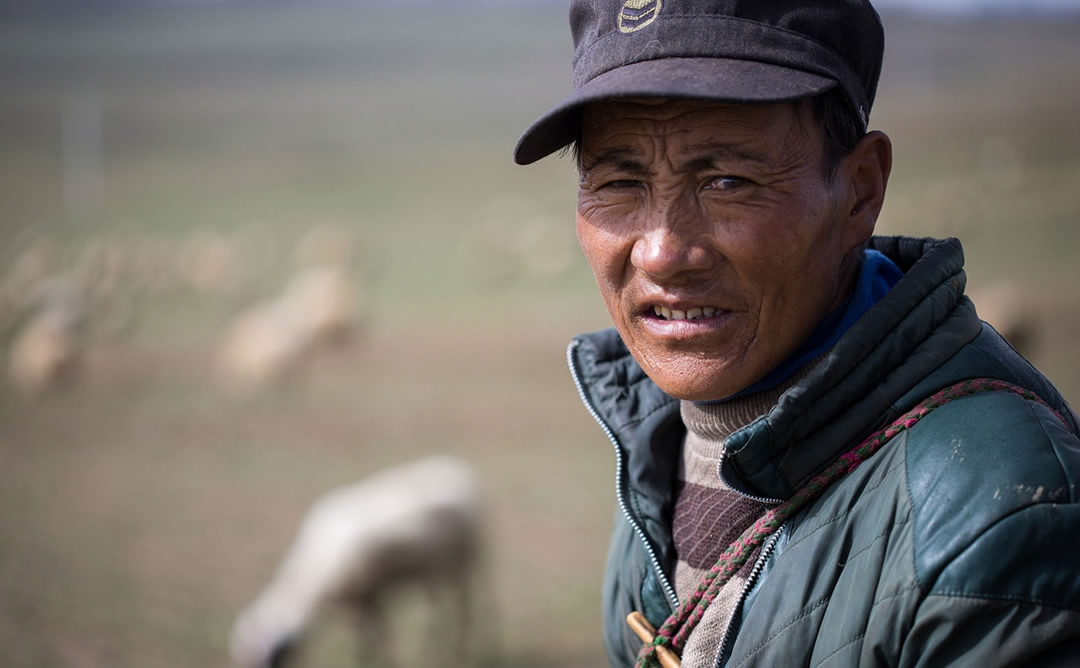
The shepherd Tsering got back to herding earlier than normal, bringing the hungry sheep back onto the summer prairie after the rainstorm.
The shepherd Tsering got back to herding earlier than normal, bringing the hungry sheep back onto the summer prairie after the rainstorm.
A FAMILY ON THE PRAIRIE
In the morning, Tsering’s wife joins other village women to milk sheep and make ghee. The women will then have breakfast beside the sheep, enjoying milk tea and fritter. Laughter and talk is heard among the ladies as they share a simple life on the prairie.
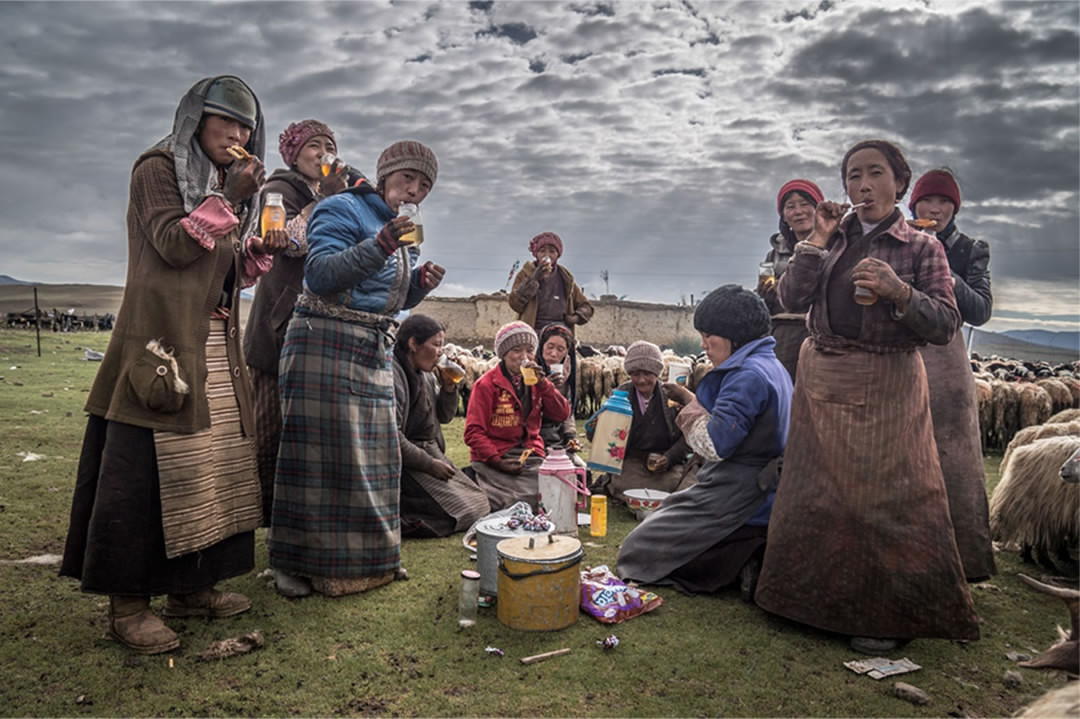
The shepherd Tsering got back to herding earlier than normal, bringing the hungry sheep back onto the summer prairie after the rainstorm.
The shepherd Tsering got back to herding earlier than normal, bringing the hungry sheep back onto the summer prairie after the rainstorm.
There are four shepherds in the village altogether that are responsible of the thousands of sheep and goats of 33 families. The shepherds receive income based on their work, and make around 160 dollars a month.
There are some very young ladies in the milking group, most of whom are married and in their early 20’s. Under a normal situation, women in Tibet stay at home, doing housework and farm work, while the male roles in Comai lean more towards tending to work outside the house, such as a transportation business.
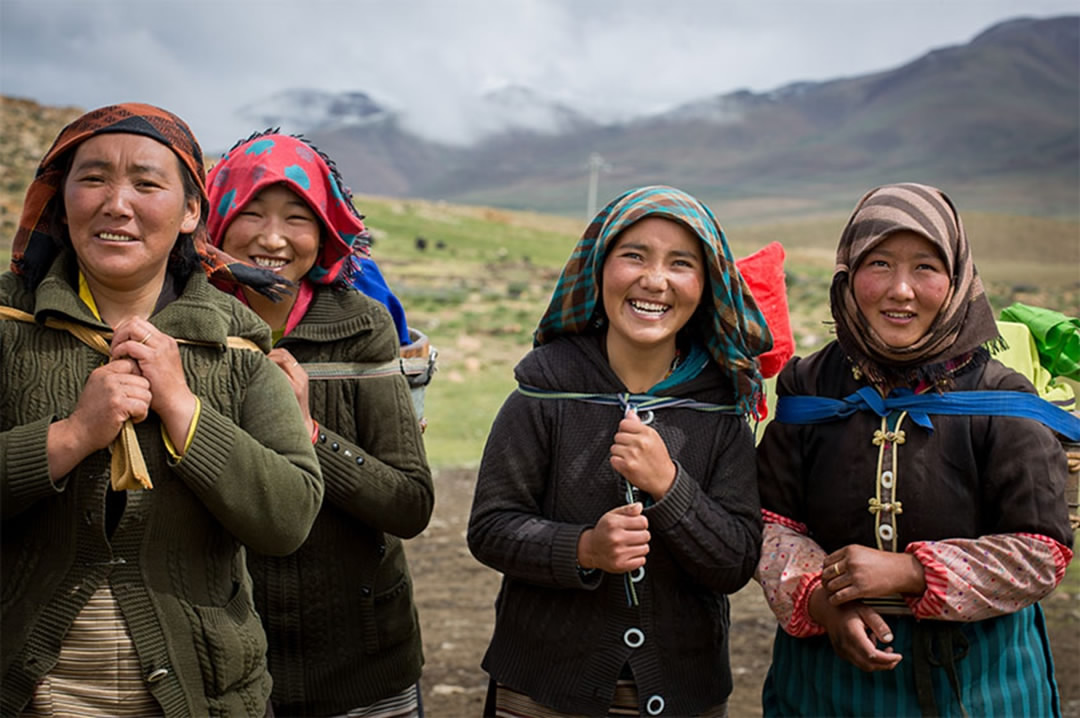
Tenzin cultivated his faith of Buddhism from childhood, and his beliefs lead Tenzin to the valley.
Tenzin cultivated his faith of Buddhism from childhood, and his beliefs lead Tenzin to the valley.
But for Tesring, the life of shepherd will pass on to his next generation. Despite having a daughter in high school, Tesring’s son decided to not continue his education, claiming a lack of interest and the need for more hands at home. Now he helps herding yaks (the most famous livestock in the Tibetan region) in the mountain and has decided his future lies in pastoral work, just like his father.
The development of funeral culture in Tibet
(Co-produced by Xu Jiye and Tian Yi)

